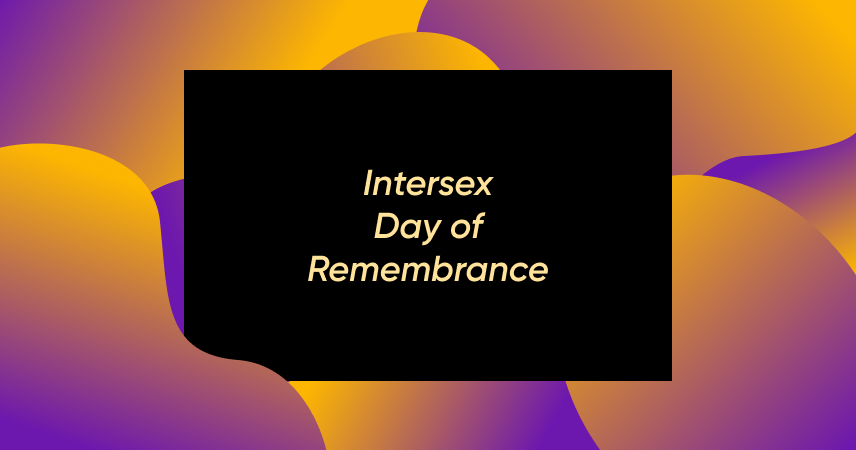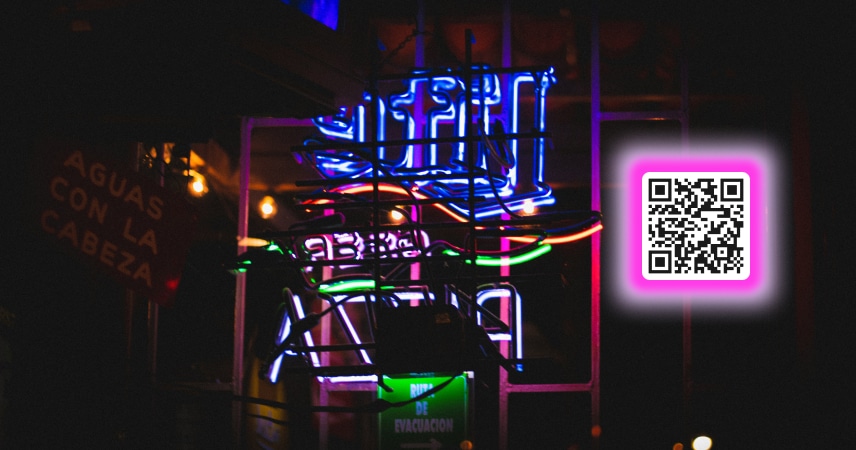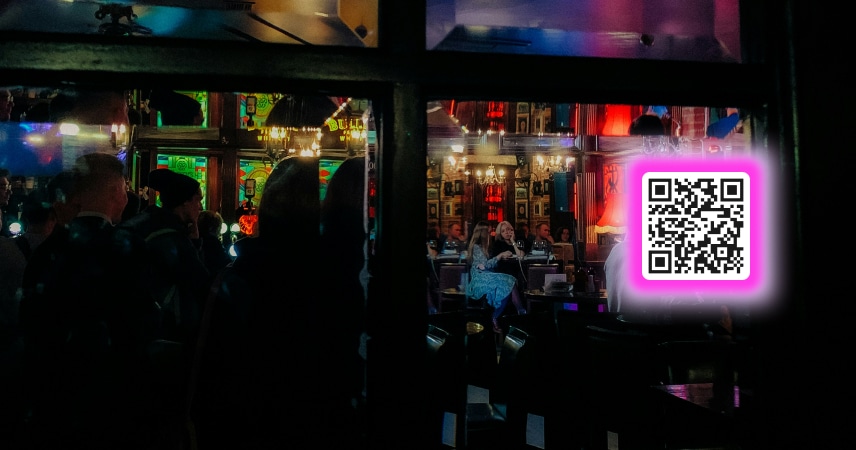
What is intersex?
Intersex is an umbrella term that refers to a variety of differences in sex traits and reproductive anatomy. Those differences may occur in genitalia, hormones, internal anatomy, gonads, secondary sex traits, or chromosomes, and they might get noticed immediately at birth, during childhood, puberty, or even later in life.
When intersex traits are noticed at birth, parents are often told it is unnatural and surgery must be performed as soon as possible to make the children’s body look “normal”. Some parents don’t get a chance to decide, so the surgery is performed without any form of consent, and even if the parents agree to surgery, they often do so because of the pressure from the medical staff.
Some doctors say that surgery is the only way to make the child appear “normal” and avoid bullying later in life, others go as far as speculating that the child’s intersex traits may lead to illness and death. Shocked and worried, parents agree to it, but come to regret it soon when they find out the surgery was not only unnecessary but also extremely damaging both mentally and physically.
Since there is practically no public awareness of intersex people and the problems they deal with, intersex people often grow up ashamed of their bodies and feeling very isolated. Since “intersex” is still not a very common term, some of them don’t even realize they are intersex and that there are many people who are going through the same things they go through.
In recent years, the intersex community has become bigger and stronger than ever. The members of the intersex community are united by their experiences living with intersex traits, the belief that those differences are natural, and the idea that everyone deserves to make informed choices about their bodies, which is something some intersex people still don’t get.
So, how common is intersex?
Since there are dozens of intersex variations and some of them may remain undiagnosed until later in life, it is difficult to accurately determine the number of intersex people in the world.
Some studies give an estimate of 1 in 5000 or 1 in 1500 people, but those numbers are often misinterpreted. Those studies only consider newborns with ambiguous genitalia, which is just one of dozens of intersex traits.
Studies that consider other intersex traits as well conclude that in actuality, 1 in 50 people are born intersex. That means that an average person can meet as many as 200 intersex people in a lifetime.
If that seems like too high of a number, that’s because intersex identities are still surrounded by lots of stigma and harmful stereotypes, which stops intersex people from speaking up about their experiences. The fact that there’s still a lot of misleading data on the Internet makes it even worse by creating an impression that being intersex is very rare and thus, it doesn’t affect you or people around you.
Intersex Day of Solidarity History
Intersex Day of Solidarity was first celebrated on November 8 in 2005. The event was organized by Joëlle-Circé Laramée, the then Canadian Spokeswoman for Organisation Intersex International to highlight issues faced by intersex community and raise awareness about intersex people.
The choice of the date was not accidental. November 8 marks the birthday of Herculine Barbin, a French intersex person whose memoirs were published by the French philosopher Michel Foucault. While it is known that Barbin wrote a memoir, it is not clear how much of it is true and how much is fiction in the version published by Foucault. Some argue that Foucault romanticized Barbin’s life and others suggest much was lost in translation. Still, after Foucault’s version of the memoirs was published, intersex issues became the topic of public discussion for the first time ever.
The story of Herculine Barbin
Adélaïde Herculine Barbin was born November 8, 1838, and was assigned female at birth. She lived in an orphanage as a child and later joined the convent of the Ursulines of Chavagnes. After she finished her studies, she became a school teacher and befriended Sara, the daughter of the headmistress of the school she worked in. They eventually developed romantic feelings for each other and started having an affair.
When the villagers found out about it, Herculine felt remorse and confided in the local bishop who then advised her to go see a doctor. The doctor discovered that although Barbin presented as female and had a vagina, she also had a small penis and testicles inside her body. The authorities got involved in Barbin’s case and demanded that she resigns from her job, leaves her village, and starts living as a man since the doctor determined that she is one.
Herculine was forced to change her name to Abel, and her case gained quite a lot of publicity. As Abel, she lived very unhappily — she had to act as someone she wasn’t, and the press created a public scandal by portraying her as a monster, making her suffering even worse.
She was forbidden from seeing her lover, so she moved to Paris, where she spent the last few years of her life working on a memoir, in which she insisted that she was a woman.
Herculine Barbin was found dead in her apartment in 1868. She died by apparent suicide at 30.
The importance of Herculine Barbin
From the story of Herculine Barbin, it is clear while intersex rights are a feminist issue. Her relationship with a woman was the reason why she had to go through a medical examination and later was forced to live as a man.
Many decades later, Herculine’s story remains chillingly realistic. As intersex activist Leslie Jaye writes in her piece about the life of Herculine Barbin:
“There was no language for Herculine to describe and validate herself, except those of condemnation. She wrote of herself as ‘condemned’, and ‘punished’, pushed beyond the boundaries of society’s willingness to accept, and understand.
Almost 150 years after Herculine’s death intersex people ourselves are reframing the language and understanding about what it means to be intersex, what it means to embody diversity that remains both known of, yet unspoken.”
Medically unnecessary intersex surgeries
Intersex people deal with discrimination twice as much as non-intersex LGBTQ+ folks, which affects their mental health, financial well-being, and the quality of medical care they receive. One of the biggest issues faced by intersex people is intersex genital mutilation, also known as intersex surgeries.
Intersex surgery is a topic that’s present in every discussion of intersex rights. To this day, 1 in 2000 babies show intersex traits that lead the doctors to suggest cometic surgery, which should supposedly allow the child to grow up “normal” and fit in with their peers.
At the core of this issue is persistent and harmful misunderstanding of what sex is. Just like gender and sexuality, biological sex is a spectrum, and while most people would place themselves at one of the two ends, some of them fall somewhere in between. The centuries-long obsession with the binary idea of sex (as well as gender and gender roles) leads to unethical practices like intersex surgeries that often cause very painful consequences. Nevertheless, such procedures are still legal in all but one country in the world.
What is intersex surgery like?
Intersex surgery performed with the goal to make the infant’s genitals and reproductive organs confirm to the binary sex stereotypes can have many side effects that may affect intersex people throughout their lives such as painful scarring, reduced sexual sensitivity, torn genital tissue, possible sterilization, incontinence, or infertility.
Since intersex is an umbrella term that covers dozens of intersex identities characterized by differences in genitalia, hormones, chromosomes, or reproductive organs, there is also a variety of procedures that may be performed on intersex infants. Some of them include:
- Clitorplasty — “repositioning” or “reducing” a clitoris
- Vaginoplasty — creating or altering a vagina
- Hypospadias surgery — repositioning of a functional urethra
- Gonadectomy — removing of the organs that would make sex hormones
Intersex surgery as a human rights issue
Every human has a right to physical integrity, so when intersex surgeries are performed, the rights of intersex people are violated. Cosmetic intersex surgeries very rarely occur with the full, free, and informed consent of the person. Since most procedures involve children who are younger than 2 years old, there’s no way for the child to decide for themselves. At the same time, the parents who agree to surgery are often made to think that is the only possible option, which is not true at all.
Disguised as a medical issue, cosmetic intersex surgery is a form of discrimination. For people who are not intersex, nonconsensual surgery and forced treatment may sound like something inconceivable, yet it’s the reality of intersex children all over the world.
Instead of protecting the rights of intersex people to live free from torture and harmful practices, states continue allowing such medical interventions thus reinforcing harmful stereotypes around intersex people.
Psychological damage caused by intersex surgery
Those violations create not only physical but also psychological damage to intersex people, who feel erased from the public discourse and even from the discussion of their own health and bodies. Some only find out about the surgery they had as children when they are adults and have to deal with health issues they can’t understand. Others may come to a realization that they were forced into categories such as sex and gender that they never chose for themselves, which may complicate their gender identification.
Like any other people, intersex people should be able to make their own informed decisions about their bodies, so non-consensual intersex surgeries are a pressing human rights issue that deserves much more publicity than it gets. If we let go of the harmful stereotypes, end medical speculation, and reconsider the binary concept of sex, we will see there’s no reason why intersex surgeries should be performed. In many cases, the right decision is actually very simple — just wait, be supportive, and let the person decide for themselves.
Are intersex people a part of the LGBTQ+ community?
The “I” in the LGBTQI+ stands for Intersex, so the vast majority of LGBT organizations include and welcome intersex people, regardless of the abbreviation they use. Just like gay, lesbian, bi, and trans people, intersex folks may face a lot of stigma and prejudice in their daily lives. Both intersex and LGBTQ+ identities have been erased and pathologized for decades.
On the other hand, it is wrong to assume that every intersex person is queer. Being intersex does not affect a person’s sexual orientation, which describes who the person is attracted to. At the same time, intersex is a term that refers to biological sex, so it doesn’t define the person’s gender identity, which describes how the person feels and thinks of themselves and has nothing to do with the person’s genitaliia.
While it is wrong to assume that all intersex people are trans or vice versa, it is quite common for intersex people to identify as trans. When doctors perform surgery on intersex babies, their goal is to choose between male and female and make the baby’s body look like one or the other. While it is possible to predict the child’s gender identity through various tests, sometimes, the doctors make a mistake, and the person doesn’t identify with the gender they were assigned at birth.
At the same time, just like non-intersex people, intersex folks can be cisgender and straight. Naturally, those intersex people will probably not consider themselves a part of the LGBTQ+ community.
Intersex-inclusive language
Being mindful of the words we use is one of the simplest yet most effective ways to help intersex people. We might consider some words or phrases to be so “normal” that we don’t even think how they may affect people in our surroundings. When we use appropriate language instead of outdated terms, we help to gradually replace old harmful concepts with new ones.
Firstly, the correct term is “intersex” — never “intersexed” or “intersexual”. The former implies that intersex is a verb or an active decision, which it’s not, while the latter sounds like sexuality rather than a medical condition.
“Hermaphrodite” is an offensive word that was previously used to describe intersex people and may still be found in medical literature. The term comes from mythology and implies that intersex people are some scary mysterious creatures, which is an incredibly harmful stereotype.
“Differences of sex development” — also known as “disorder of sex development” and “DSD” are also controversial terms. Some people reject them since intersex is a natural human difference, not a medical problem that needs fixing. Others might prefer the term arguing that it’s less sensationalizing than “intersex”.
It is also wrong to say “both sexes/genders” because neither sex nor gender is binary. There are more than two genders, and there are dozens of different combinations of sex traits.
How can you be a better intersex ally?
It’s important to remember that there’s only so much you can do as an ally. If you speak up for intersex people and their rights, that’s amazing, but it’s crucial that you also help intersex people speak for themselves rather than be spoken about in the society.
Attending events hosted on Intersex Day of Remembrance (also known as Intersex Solidarity Day and Herculine Barbin’s birthday) in your communities and inviting your friends to join can be a great place to start. If you want to go one step further, you can also help organize an event with intersex speakers or performers.
Don’t expect to be educated, and when someone does educate you, don’t take it for granted. Never share private information and don’t disclose anyone’s intersex identity without their consent. Only ask questions that you yourself wouldn’t mind answering. Take your time to do some research on issues like intersex genital mutilation, read memoirs of intersex people, and follow intersex influencers.
Highlight issues faced by intersex people in discussions of sex and gender, but don’t sensationalize or make generalizations. Learn some statistics that could illustrate your point and encourage solidarity towards intersex people in your friend group.
—
About Taimi: Taimi is the world’s largest LGBTQ+ platform that features a social network and dating app. Taimi offers the safest and most secure user experience on the market — with its several verification layers, 24/7 profile moderation, PIN/Fingerprint/Face ID, and live support. The platform’s fundamental policy is zero-tolerance for judgment, discrimination, hate, or aggression.
Taimi is free to download. Taimi Premium subscription provides access to features unavailable or limited in the free version of the app.
Follow the latest Taimi news on Facebook, Twitter, Instagram.





